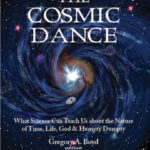We run our website the way we wished the whole internet worked: we provide high quality original content with no ads. We are funded solely by your direct support. Please consider supporting this project.
What is the significance of Hosea 11:8–9?
After plotting severe judgment against Israel (vs. 5–7) the Lord says,
“My heart recoils within me;
my compassion grows warm and tender.
I will not execute my fierce anger…
I will not come in wrath.”
This passage shows that God experiences conflict between his compassion and his justice and that he sometimes alters his plans (his heart “recoils”) as a result (cf. 1 Chron. 21:11–15; Ezek. 20:5–22). He is a personal God who sometimes experiences conflicting emotions as he participates in the ups and downs of life with his people. Only a preconceived, philosophical ideal of what God is “supposed” to be like would ever suggest that this tender portrayal is one of weakness. In truth, God’s responsiveness is a demonstration of his strength.
Category: Q&A
Tags: Open Theism, Q&A
Topics: Open Theism
Verse: Hosea 11
Related Reading

How do you respond to Genesis 45:5; 50:20?
Joseph said to his brothers, “…now do not be distressed, or angry with yourselves, because you sold me here; for God sent me before you to preserve life,” (cf. v. 7). Joseph later says, “Even though you intended to do harm to me, God intended it for good, in order to preserve a numerous people…”…

Is homosexuality a sin?
There are three passages in the Old Testament (Gen. 19: 1-13; Lev 18:22; 20:13) and three in the New Testament (Rom. 1:26-27; 1 Corinthians 6:9-10; I Tim. 1:10) that have traditionally been read as prohibiting homosexuality. On top of this, the entire biblical narrative presupposes that sex is supposed to take place between a man…

Why Can’t God Stop Evil? The Thomas J. Oord Interview (podcast)
Greg and Thomas talk about Open Theism and how Greg’s views differ from Thomas’s. Theology nerds, get your compass and your flashlight and prepare to go DEEEEEP in the weeds! Thomas’s book: God Can’t Episode 487 http://traffic.libsyn.com/askgregboyd/Episode_0487.mp3

Roger Olson’s Review of The Cosmic Dance
Today we wanted to share a review of The Cosmic Dance by esteemed theologian Roger Olson. You can check out an excerpt below or you can read the whole review here. You can place an order for The Cosmic Dance here. The Cosmic Dance is Greg’s (and friends’) attempt to present the case that the best contemporary science supports viewing…

What is the significance of 2 Samuel 24:12–16?
The Lord gives David three options of how Israel will be judged. “Three things I offer you; choose one of them, and I will do it to you.” This verse reveals how the Lord gives people genuine alternatives and responds to their choices. If God foreknew what David would choose, however, the purpose of the…

What is the significance of Jonah 1:2; 3:2, 4–10; 4:2?
God “changed his mind” (3:10) about the destruction he planned to carry out on Nineveh. If all events in history are eternally settled and known by God as such, his word to Jonah that he planned to destroy Nineveh in forty days was insincere as was his inspired testimony that he in fact changed his…
